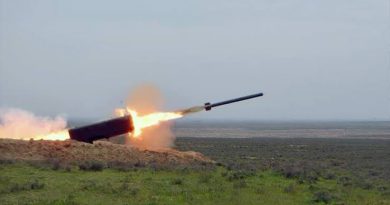Iran: Maryam, Fatema, and Azhar, the Ahwazi women imprisoned for trying to preserve their people’s culture
By Rahim Hamid and Aaron Eitan Meyer
Anti-Arab discrimination permeates every facet of life for the Ahwazi people
Even in the present age of unparalleled cynicism, it is still frustrating to consider how some causes are elevated to international discourse and set forth by media and human rights organisations alike as essential news and human rights, even as similar cases – which in many instances meet the key elements supposedly embodied by popular causes – are neglected and obtain no place in the conscience of the international community.
Consider, for example, the arrest of Ahed Tamimi, a Palestinian activist from the village of Nabi Salih in the West Bank. Her international reputation derives from her many appearances in images and videos in which she would confront Israeli soldiers. In 2017, during one such episode, she slapped an Israeli soldier, which led to her detention for 18 months, during which time she had regular access to counsel. She was released on 28 July 2018. All the while, the majority of media and human rights groups openly supported her and calling on the Israeli government to pardon her and/or release her. In short, she was treated as an icon in many circles around the world. A Google News search for her name will return roughly 14,200 results in English alone.
To explain the authors’ extreme frustration, consider the plight of Maryam Ameri (aged 28), Fatema Tamimi (aged 39), and of Azhar Alboghobeish (aged19). They are Ahwazi women who were arrested in the dark of night for the ‘crime’ of merely advocating education for Ahwazi children in their native Arabic language, which is long proscribed by the regime, and networking with other human rights activists in the region and beyond to raise awareness of the crisis there and the regime’s persecution. Mrs Tamimi in particular is an Ahwazi poet, professional photographer and human rights activist noteworthy for her attempts to preserve and share the very Ahwazi culture and history that the Iranian regime so desperately seeks to erase.
None of these women so much as confronted a soldier, much less assaulted one; none of their names have merited any outrage or media attention outside of Ahwazi human rights organisations. Maryam was arrested on 26 November, Fatema on 9 December, and Azhar on 10 December. A Google search for their names results in precisely zero “News” results. The only indexed results are articles such as this one, written by local human rights organisations and others who have learned of the regime’s depredations and spend their time and effort in documenting these crimes.
Fatema’s arrest is particularly newsworthy, and by any objective metric should be newsworthy beyond human rights interests. Her arrest took place very soon after Hossein Salami, the commander-in-chief of the Iranian Revolutionary Guard Corps, visited Mashour for the purpose of assessing the situation of the flood that destroyed and drowned large areas of the area following widespread protests by local Ahwazis at the inaction and the negligence towards the suffering of people from the yearly flood, which has once again been exacerbated by regime efforts to redirect relief to ethnically Persian areas. Some may recall that in April of 2019, the authors documented a similar visit by Salami’s predecessor, the late and unlamented Qassem Soleimani, which was followed by deployment of the IRGC’s Basiji militia into Ahwaz.
Mashour in particular, is the city which witnessed a shocking massacre of its young Ahwazi people due to protesting at unemployment and rise of prices and racial discrimination by Iranian officials in denying the Ahwazis any chance of being hired in the several petrochemical companies reserved only for Persian economic immigrants. The Ma’shour Massacre consisted of artillery being opened up first on the young protesters on the street, and then following them into the sugar cane fields in which the wounded attempted to hide. As we reported at that time little more than a year ago, it was days before the gut-wrenching odour of the young protesters burned alive along with the sugar cane set ablaze ceased inundating the people of Ma’shour with every gust of wind off the charred and smouldering marshes.
Fatema has notably composed several folkloric songs for Ahwazi children in an effort to revive the memory of Ahwazi tradition and customs so that the new Ahwazi young generation can preserve its Ahwazi identity and culture.
She also produced documentaries on Ahwazi historic buildings and the necessity to protect them from being destroyed. She also has travelled extensively to every area, emphasising the rural regions, meeting with elder women and men asking them about their own lives as well as asking them about the tales that used to exist among the past Ahwazi generations. Particularly given the decades-long assault on Ahwazi education, preservation of this oral history is absolutely essential, and even more so due to the regime’s sustained efforts in erasing Ahwazi history and heritage.
As the authors have helped document, Anti-Arab discrimination permeates every facet of life for the Ahwazi people, who are denied the opportunity to be educated in their own Arabic language and forced instead to learn only in Farsi, which most view as the language of occupation and oppression. This culture of discrimination and denial of the most fundamental rights in every area of life is, for the rulers in Tehran, a means of ensuring that Ahwazis remain powerless and marginalised; those who dare to object to this systematically unjust and racist system are targeted as “troublemakers”, with thousands arbitrarily detained, imprisoned, tortured and all too often executed on ludicrous charges such as “enmity to God.”
Fatema is a mother of two and works in local press outlets and social media platforms as a photojournalist, correspondent, director and cultural activist. Over the past years, a number of her works have focused on floods in Ahwaz and documented the reasons behind the floods and the disastrous social and economic consequences and results of them in these Ahwazi regions. She has been working in local newspapers since the 1990s, and has produced a number of short documentaries on the poverty, addiction, unemployment and prosecution from which the Ahwazi people are suffering. She has 25K followers on Instagram.
In one of her Instagram posts, while she was wearing the traditional long dress of Ahwazi women and talking about the history of Ahwazi buildings that are neglected, destroyed by the Iranian regime, she walked out of one building to stand in front of a camera. As she said: “Ahwazi heritage is a huge asset that we Ahwazis inherit from our forefathers. This asset includes material and non-material landmarks. Having knowledge of heritage and maintaining it is the duty of every single Ahwazi person among us because it is our history and identity which distinguishes us as Ahwazis from the rest of peoples. Our loved Ahwaz, as one of the ancient societies, whose civilian history dates back to 5,000 years BC, has a rich heritage. We have attempted, as part of a series of episodes, to shed light on this cultural heritage.”
Not only is she unlawfully detained as a political prisoner, but criminalising her work is flagrantly illegal under international law, and explicitly violates Iran’s obligations under the few treaties it has signed. As the authors have repeatedly pointed out, Iran has been a signatory to the United Nations’ International Covenant on Civil and Political Rights since 1975, and is therefore bound by its Article 27, which clearly and unequivocally provides that “In those States in which ethnic, religious or linguistic minorities exist, persons belonging to such minorities shall not be denied the right, in community with the other members of their group, to enjoy their own culture, to profess and practise their own religion, or to use their own language.”
Ahwazi rights groups and social media users condemned the arrests of Maryam, Fatema, and Azhar, as well as all the countless cultural, social and political activists arrested by the regime as part of its illegal and thoroughly racist policies, and have demanded the immediate release all Ahwazi detainees who are arrested for being cultural and/or civic activists.
These are not isolated cases, but part of a campaign of intensification by the regime, which includes targeting and persecution of Ahwazi activists in Iran and overseas, with an increasing number of social media accounts and communication platforms appearing, run by ultranationalist loyalists and propagandists specifically to slander and vilify Ahwazis as illegitimate ‘immigrants’, subjecting them to constant racist, anti-Arab abuse; a favourite theme is to label Ahwazis as Saudi immigrants, insisting that if they wish to practice their ‘inferior’ Arab culture, they should go back to Saudi Arabia. The regime’s intelligence service is suspected of being directly responsible for many of these accounts, and those on Twitter and Facebook are very certainly regime-affiliated since they could not otherwise access either site from Iran. These accounts accuse Ahwazis, amongst other things, of being troublemaking separatists, lying about Iranian history, and working with or for Saudi Arabia, Israel and the USA to undermine Iran’s regime.
And in this darkness, the regime continues to erasure Ahwazi history by any means necessary, and without any scrutiny or consequence.
Article first published on Dur Untash Studies Center.
Rahim Hamid is an Ahwazi author, freelance journalist and human rights advocate. He tweets under @Samireza42.
Aaron Eitan Meyer is an attorney admitted to practice in New York State and before the United State Supreme Court, and a researcher and analyst. He has written extensively on lawfare, international humanitarian, and human rights law. He tweets under @Aaronemeyer.



